
China
01:27, 24-Oct-2017
Reporters' Diary: A more open CPC National Congress
By Sim Sim Wissgott and John Goodrich
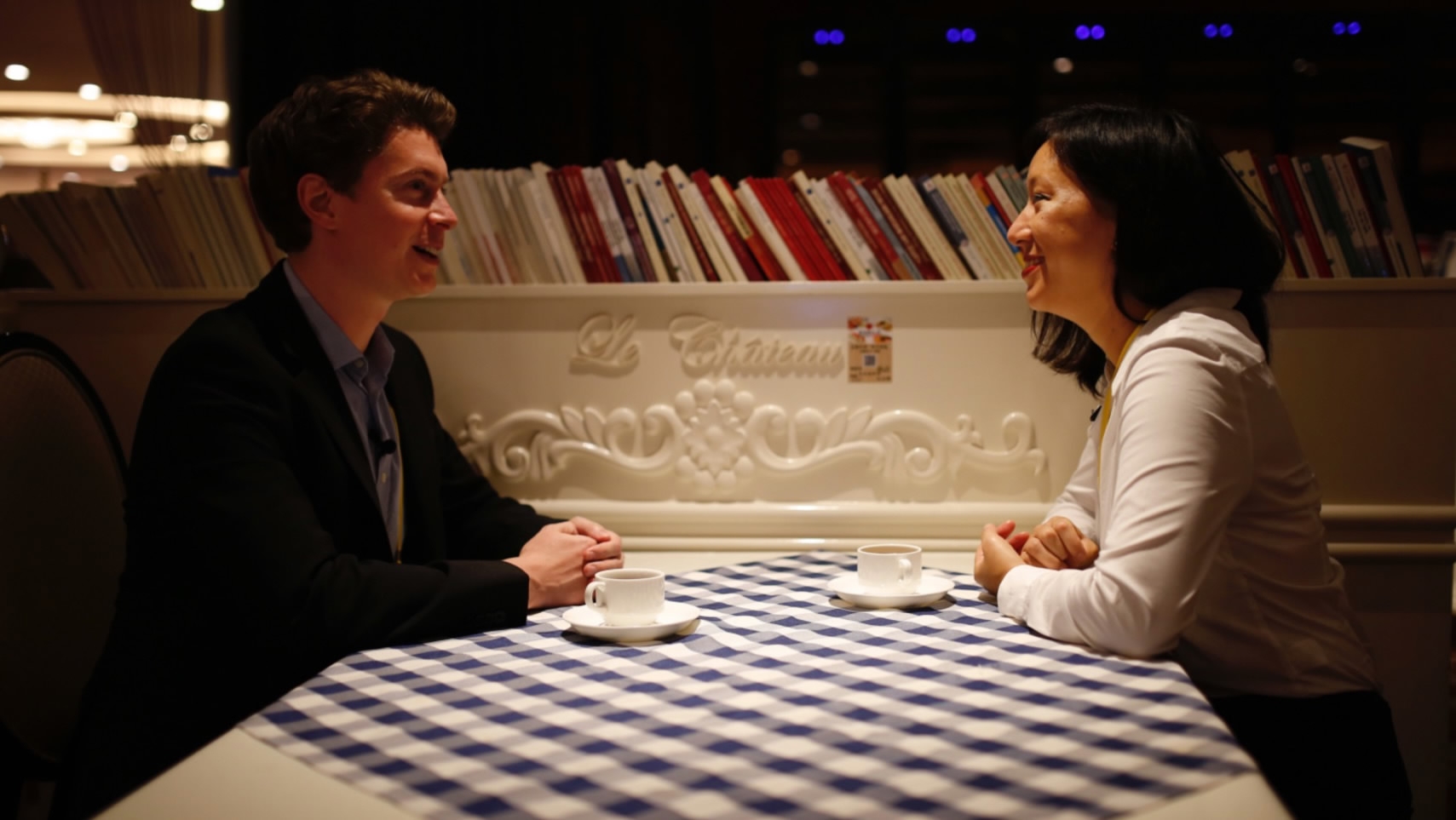
It’s always pretty much the same procedure when you cover a major event like the 19th National Congress of the Communist Party of China (CPC).
Apply for accreditation weeks, if not months in advance; a few days before the gathering you receive a press pass, your most precious possession for the length of the conference – an ‘open sesame’ that gives you access to private corridors and closed-door meetings and without which you can forget about getting anywhere near the event; and on the day, an early arrival at the venue, security checks, and some jostling with other media for a good spot to set up your camera or laptop.
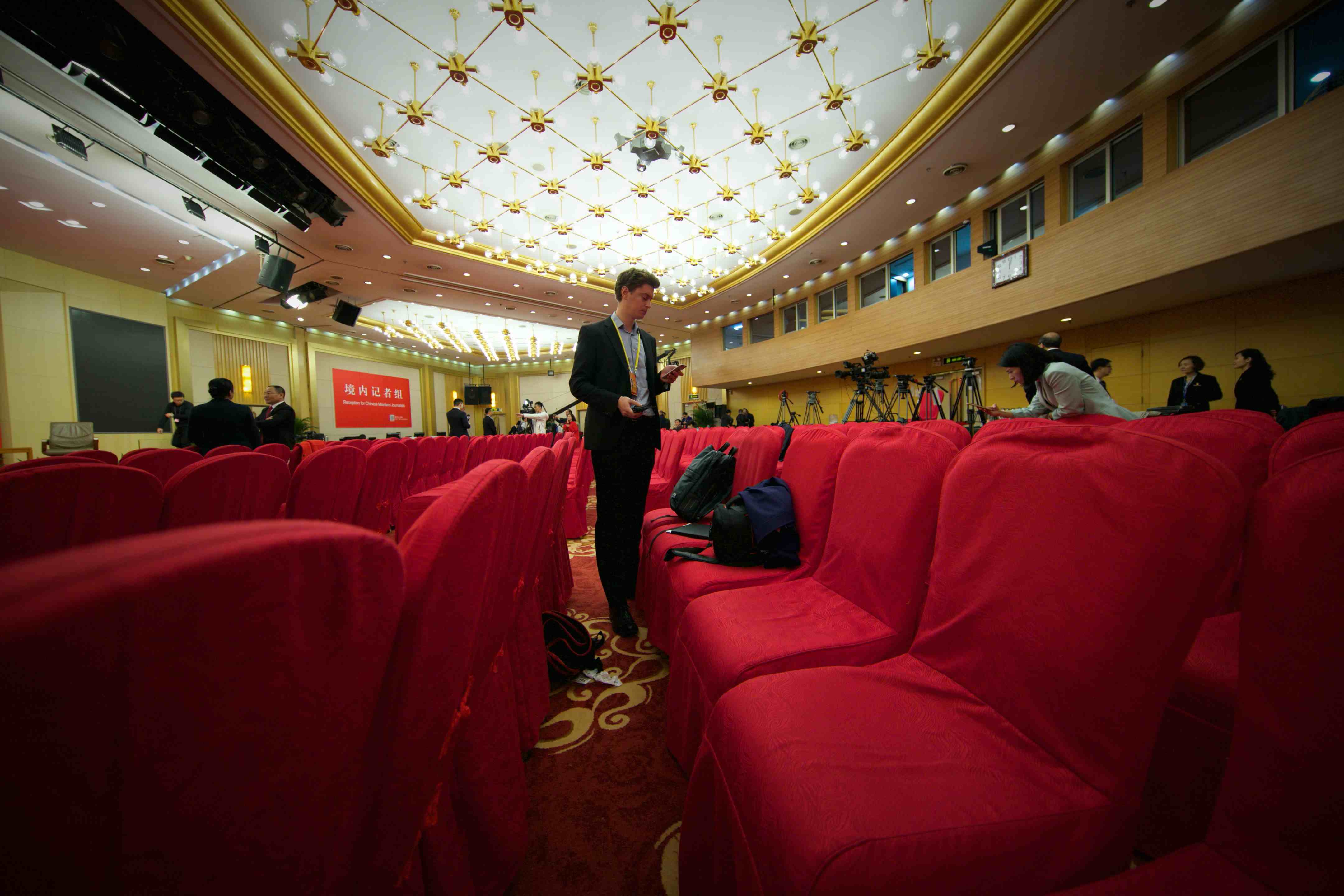
CGTN's John Goodrich at the 19th CPC National Congress. /CGTN Photo
CGTN's John Goodrich at the 19th CPC National Congress. /CGTN Photo
But whether this goes smoothly and what happens next differs from event to event.
So what has it been like to cover the 19th CPC National Congress? And how has it compared to other major summits held in China?
Between the two of us, we’ve covered this year the Belt and Road Forum, the BRICS Summit in Xiamen and the Boao Forum for Asia, as well as the G20 Summit in Hangzhou last year. Abroad, we’ve attended UN conferences, OPEC meetings, and UK party conferences.
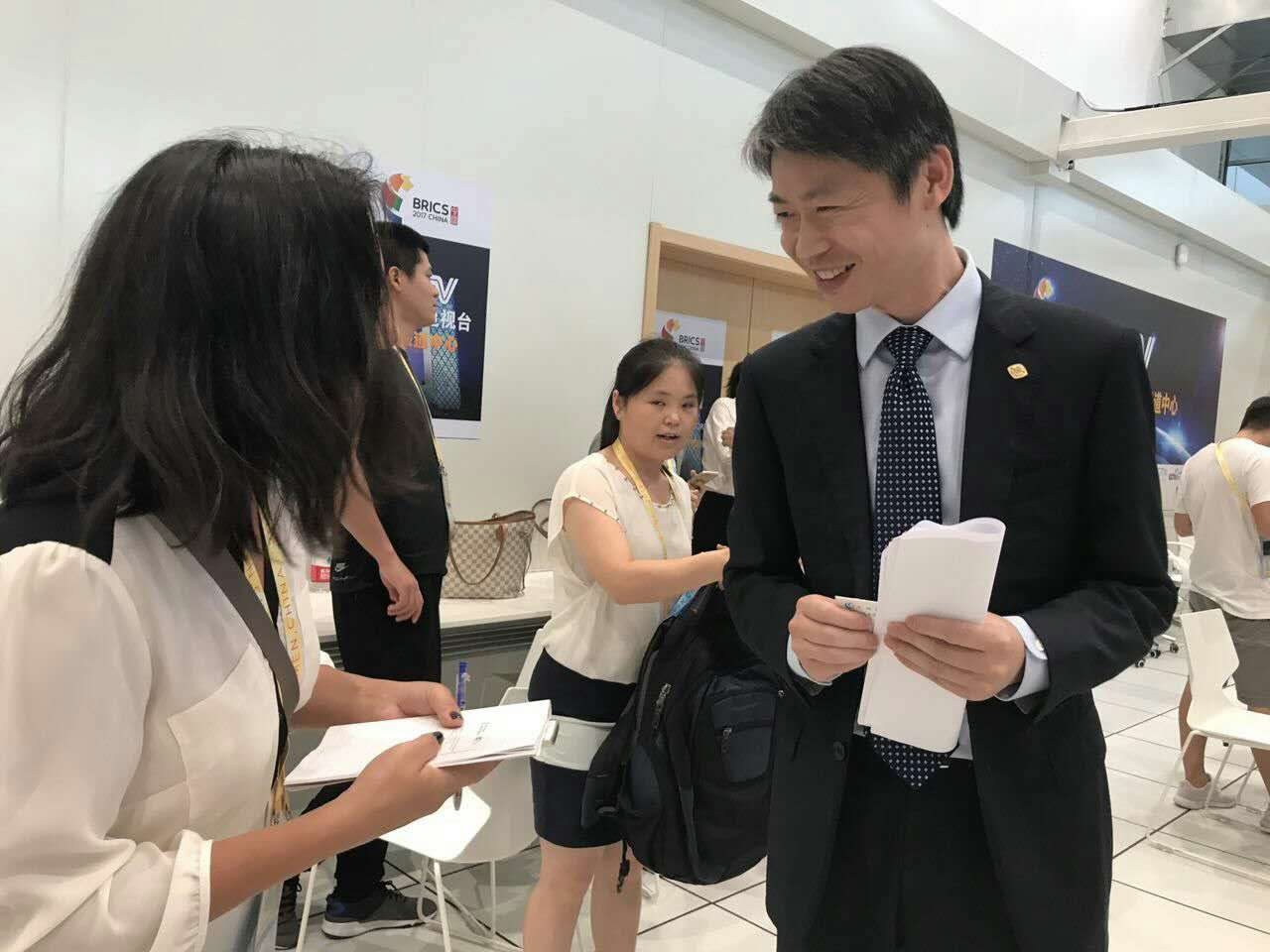
CGTN's Sim Sim Wissgott at the BRICS 2017 Summit in Xiamen, China. /CGTN Photo
CGTN's Sim Sim Wissgott at the BRICS 2017 Summit in Xiamen, China. /CGTN Photo
Most foreign reporters expect tight security and information control in China, not least at a twice-a-decade political event that will elect the senior leadership of the CPC for the next five years.
But if anything, it’s almost been easier covering the 19th CPC National Congress than other big events in China.
A total of 1,818 overseas journalists from 134 countries and regions have registered to cover the Congress, and the CPC has made concerted efforts to communicate with the media through a dedicated official WeChat account — providing regular updates on events, last-minute timetable changes, and contact information.
At the BRICS Summit, press releases and statements were nowhere to be found. Instead, journalists enquiring at the massive press center about getting a copy of Xi Jinping’s speeches were advised to “check Xinhua”.
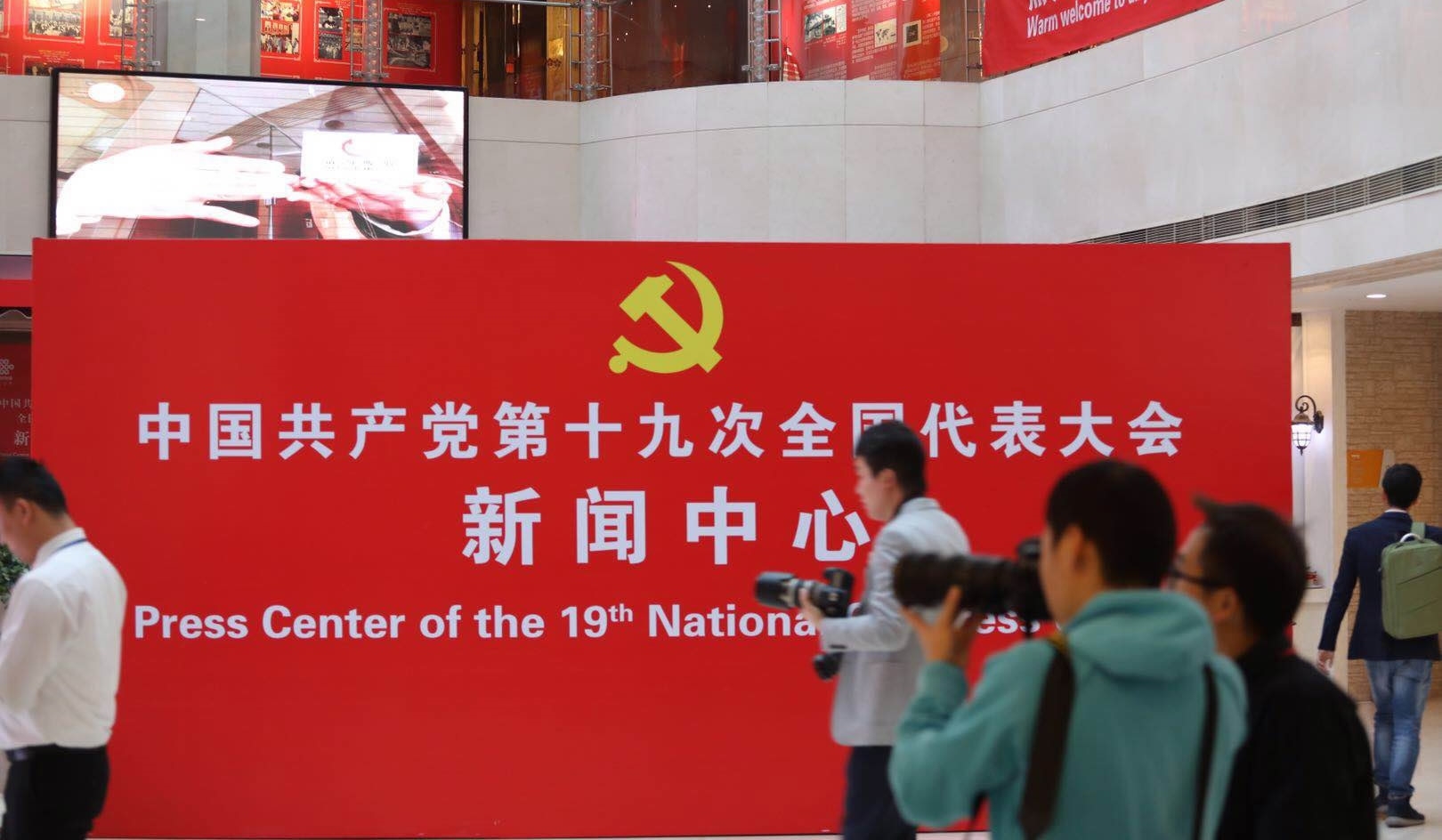
The press center of the 19th CPC National Congress. /CGTN Photo
The press center of the 19th CPC National Congress. /CGTN Photo
In comparison, at Wednesday’s opening ceremony, copies of Xi’s speech were stacked at the exit of the main auditorium, waiting to be handed out to the press.
Briefing notes and biographies of the speakers have also been available at each press conference at the media center – in Mandarin and English!
This has been much more in keeping with a British party conference, where copies of the leaders’ speech are rushed off and often distributed ahead of time. In recent years, security has increased massively at UK political events: a “ring of steel” is built, but inside the bubble ministers, journalists and party members rub shoulders.
It is the same at UN or OPEC conferences: once you have your press badge, you’re in. You might run into the Saudi oil minister in a hotel lobby, or stand behind an ambassador in the queue while waiting to grab a coffee.
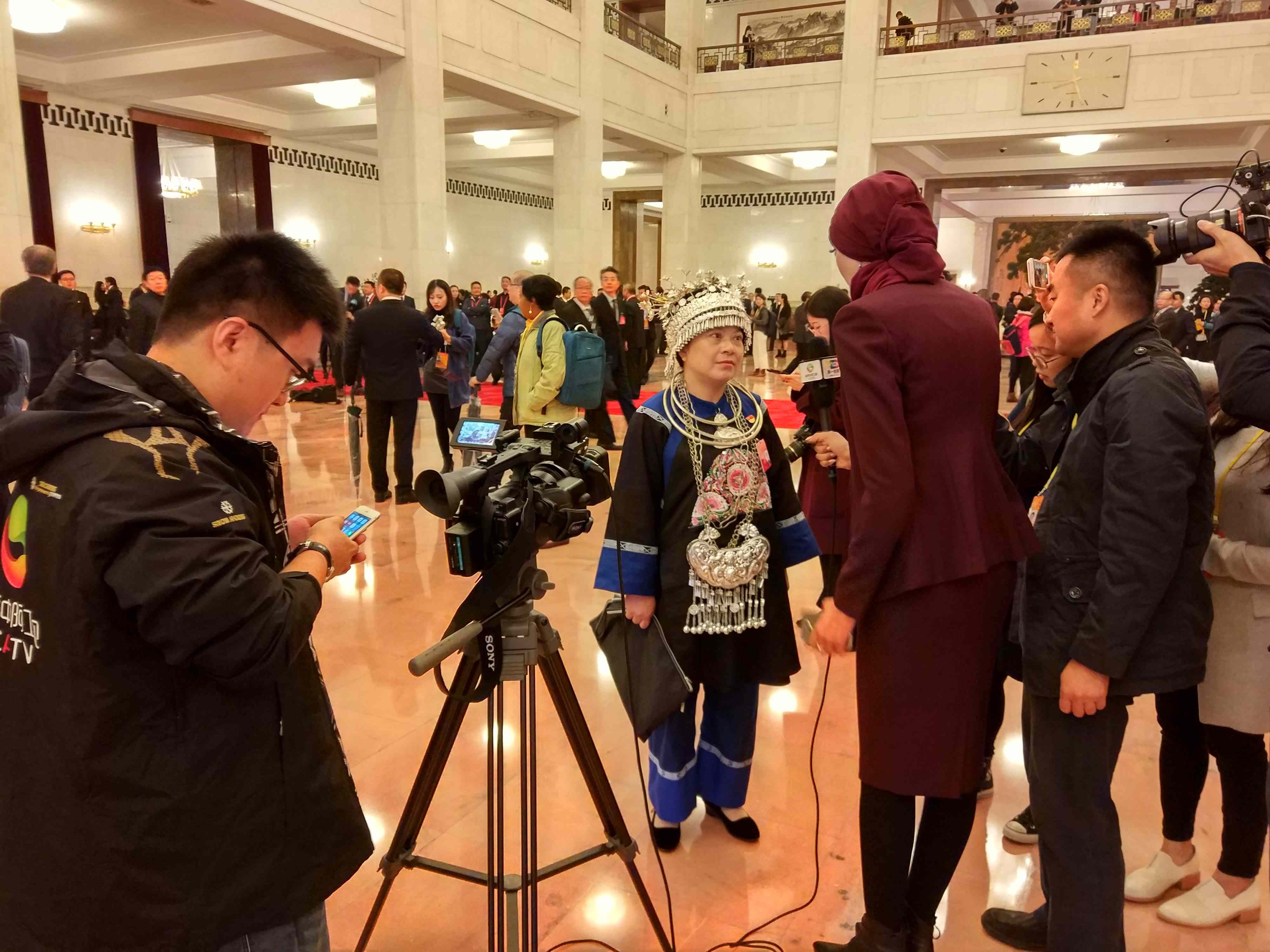
A reporter interviews a delegate at the 19th CPC National Congress. /CGTN Photo
A reporter interviews a delegate at the 19th CPC National Congress. /CGTN Photo
At the CPC National Congress, security has been tight but far from overbearing: imagine taking an internal flight in China, but with very smiley security personnel.
The G20 Summit in Hangzhou last year had intense security, but once inside the media center was open for roaming – so long as you had the right badge.
With summits comes hierarchy: have you got the green ID or the red ID? Has it got the yellow sticker? There was no way upstairs to the CGTN office at the Boao Forum for Asia in Hainan without the right neck strap, which meant one colleague had to be a little creative to get to work. But that’s another story.
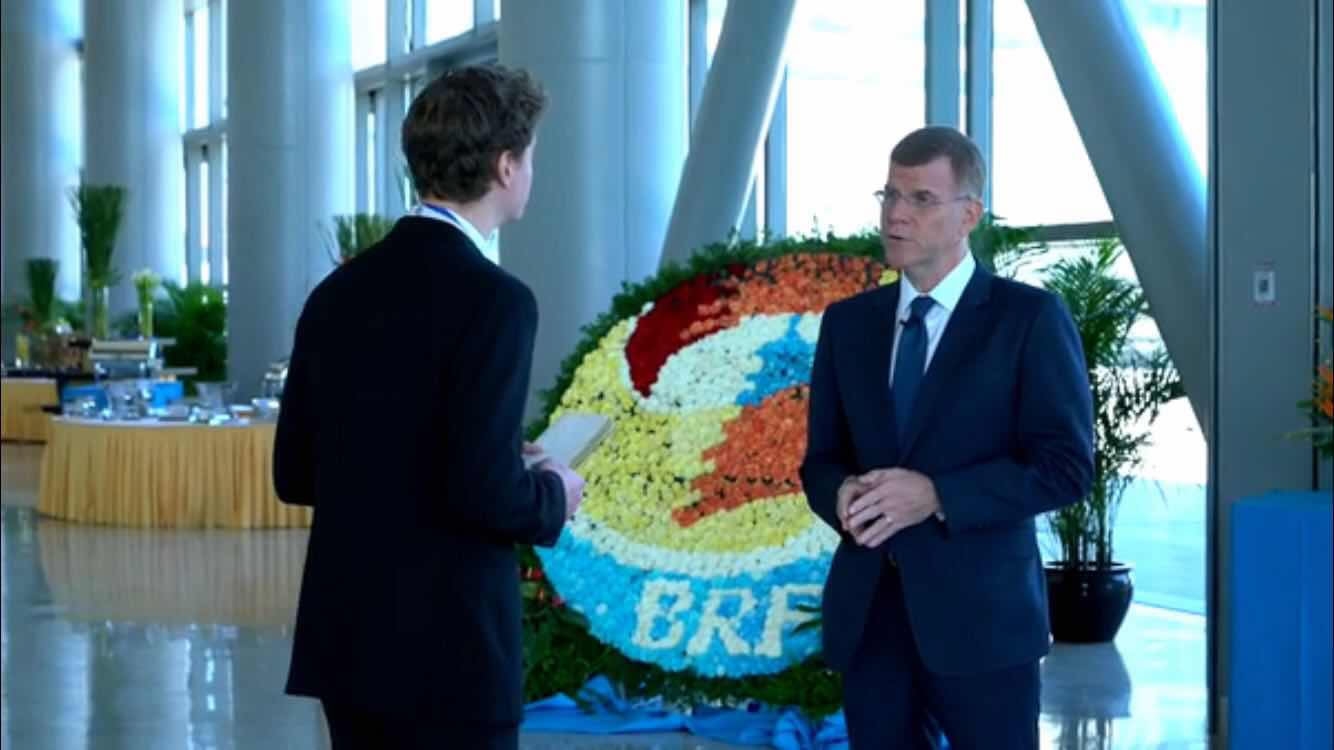
CGTN's John Goodrich at the Belt and Road Forum. /CGTN Photo
CGTN's John Goodrich at the Belt and Road Forum. /CGTN Photo
Boao was a particularly open conference – possibly because it was a touch more low-profile than events like the G20 or Belt and Road Forum. A comprehensive guide to meetings and delegates was published, booking interviews was easy, and access to senior ministers and businesspeople was plentiful – for a one-on-one interview or even in a corridor!
At big conferences abroad, there is always a press person roaming around, passing out statements, informing waiting reporters of how discussions are proceeding, and ready to answer questions. That is maybe something that has been lacking here in the media center.
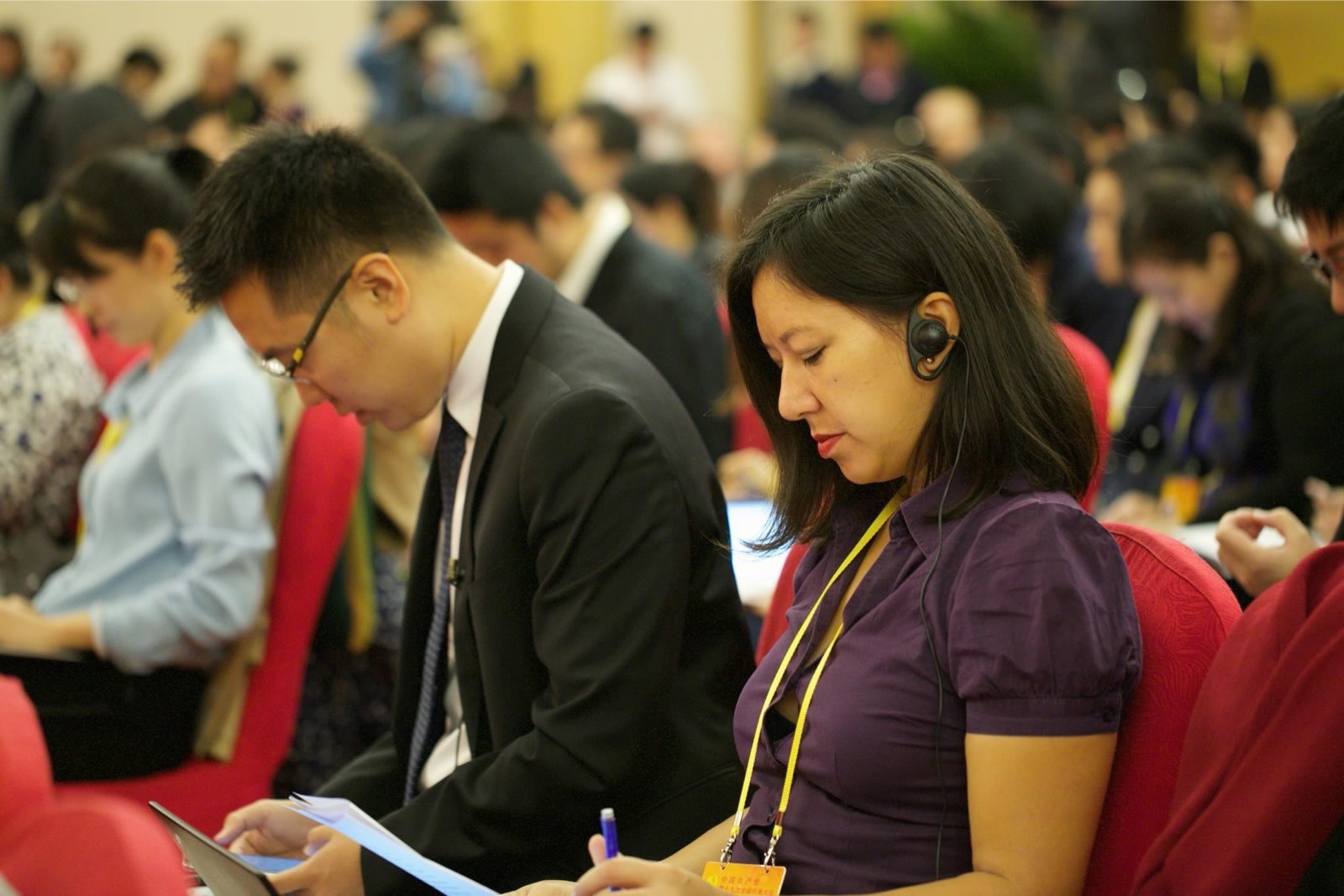
CGTN's Sim Sim Wissgott at a press conference of the 19th CPC National Congress. /CGTN Photo
CGTN's Sim Sim Wissgott at a press conference of the 19th CPC National Congress. /CGTN Photo
But the CPC has done a good job giving the media access to delegates.
There has been a so-called Delegates’ Corridor – a first at a CPC National Congress – where delegates have been brought in to talk to the media, and open delegation meetings that have included Q&A sessions with reporters. All in an effort to make this a more open event.
Before the opening ceremony, we also saw Chinese reporters swarm around incoming delegates for a few impromptu comments - a scene not unlike high-profile events abroad.
There will always be restrictions when covering such a major conference. But this has definitely been a more open and more transparent CPC National Congress than either of us expected.
7km

SITEMAP
Copyright © 2018 CGTN. Beijing ICP prepared NO.16065310-3
Copyright © 2018 CGTN. Beijing ICP prepared NO.16065310-3